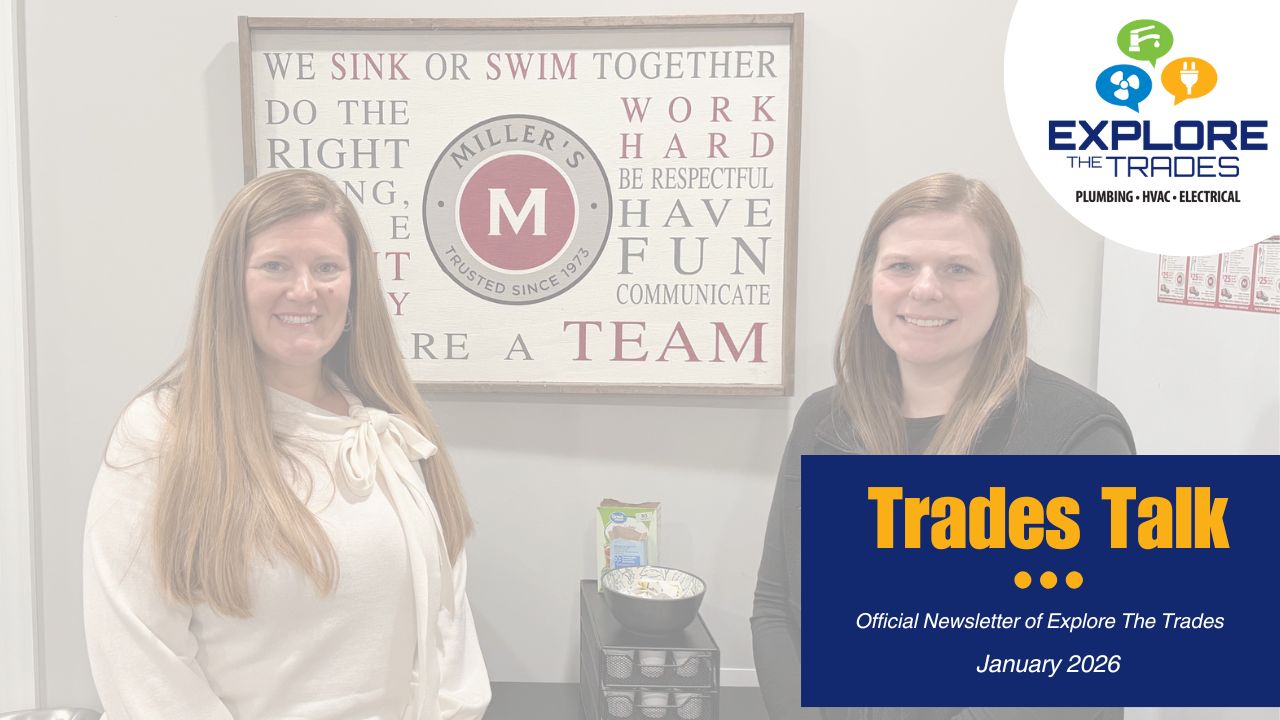
The Trades Discussion We Should Be Having
This blog post was originally written by Connor Williams of Ashton Mechanical Group published on February 6th, 2026 and is shared here with permission. I recently had the amazing opportunity to join other home services business owners on a fundraising trip to South Dakota in

Customer Service & Dispatch Careers in the Trades
Customer Service & Dispatch Careers in the Trades When people think about careers in the skilled trades, technicians carrying tools often come to mind. But behind every successful plumbing, HVAC, or electrical company is a team of customer service and dispatch professionals keeping operations on

Trades Talk – February 2026
Cast a Line for a Cause: Join Our 2026 Fishing Fundraiser! Get ready for an unforgettable experience at the Explore The Trades Fishing Fundraiser, taking place April 16–19, 2026, at Cajun Fishing Adventures in Buras, Louisiana. This all‑inclusive event offers two full days of guided

The College Enrollment Decline: Are Universities Losing Their Luster?
College enrollment has been declining for more than a decade. Explore enrollment trends in higher education and what shifting student choices mean for the future.

Trades Talk – January 2026
Celebrating Our 2025 Impact Explore The Trades is proud to share the highlights from our 2025 Impact Report. This year, we launched the fifth year of the “Explore The Trades Skills Lab, Built By Ferguson” equipment grant program and expanded our reach in school districts

Trades Talk – December 2025
Help Us Finish Strong! Explore The Trades is on a mission to connect kids, teens, and young adults with exciting careers in plumbing, HVAC, and electrical. Our free classroom poster kits (available in English, Spanish, and for kiddos ages five-11) make it easy to spark

Trades Talk – November 2025
Help Us Reach More Students! Explore The Trades is working to connect kids, teens, and young adults with careers in plumbing, HVAC, and electrical. Our free classroom poster kits make it easy to spark interest and start conversations. We’re aiming to reach 3,330 school districts

Bradford White Renews Partnership with Explore The Trades
Bradford White renews partnership with Explore The Trades to support skilled trades education. Oct. 27, 2025 — Bradford White Corporation, an industry-leading manufacturer of water heaters, boilers and storage tanks, announces the renewal of its partnership with Explore The Trades through its Industry Forward® program,

Explore Your Impact – October 2025
ONE MILLION STUDENTS IMPACTED! Because of generous donor support, more than ONE MILLION students have discovered the trades! Thanks to donors like you, Explore The Trades’ classroom resources now reach 21.7% of U.S. public school districts — that’s 2,893 nationwide. Join us as fellow trades advocates
